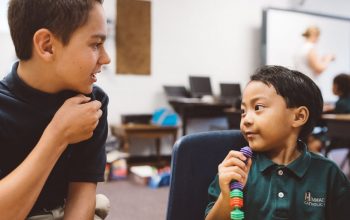Our world is becoming more bilingual and ethnic than ever. As per surveys, the younger a youngster is taught a second or third language, the more likely he or she is to learn it. According to recent research, in language teaching, pupils outperformed their peers in terms of competence and understanding. Scientists found that bilingual pupils have better exam scores and appear to be better in school than pupils in reading schools or immersion, according to research. Parental participation is higher, and engagement is stronger.
Bilingualism enhances a child’s cognitive processing, providing for improvement in disciplines such as economics, concern ability, and primary applications. Bilingual education will help a child’s future by improving career choices and educating children for life in a multilingual community www.isdenver.org/
The teaching of language skills, including the use of both as a vehicle for all curriculums, is characterized as multilingualism. It is important to cover linguistics, grammatical, literacy, and composition instruction while creating a multilingual course of study. Kids must also get different language learning in arithmetic, economics, and business studies to attain a full bilingual education. Culture, traditions, and conventions should all be studied to help children appreciate the language’s origins. Practical learning activities, online outings, and partnerships with foreign officials may all improve a bilingual program by keeping the cultural background more accessible.
Our universe is shrinking:
As a result of the increased migration and a more interconnected world economy, villages that were formerly insular now need to figure out how to work with employees from different backgrounds and backgrounds as a result of the increased migration. Multifunctional (and diverse) people are best equipped not only with linguistic skills but also with the crucial social skills designed to cope with people from various countries and cultures. The ability to be even more attentive to others, compassionate, and communicate properly are some of the talents.
Increased mental capacity
The cognitive and linguistic benefits of bilingual schooling are nothing short of incredible. The cerebral benefits alone should be enough to secure multilingualism as a regular feature of the school system, from greater test scores to unanticipated medicinal benefits. Among some of the improved memory effects of multilingualism are the following:
- Added capacity to demonstrate mastery in new situations.
- Better linguistic consciousness.
- Understanding of an individual’s personal native tongue
- Memory grows more slowly or is more resistant to it.
- Focus and judgment calls are increased.




